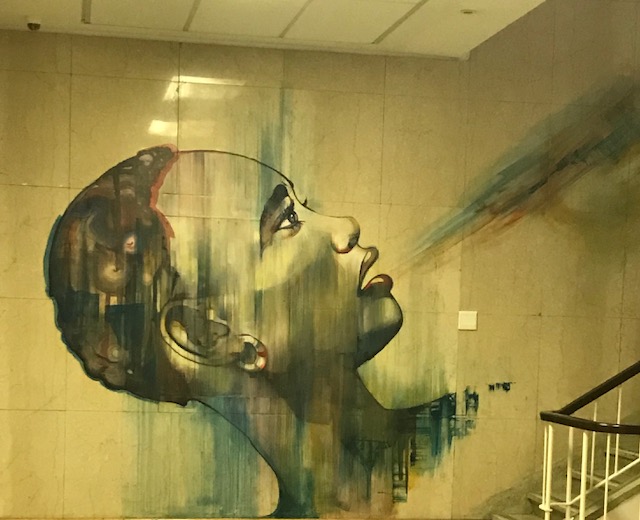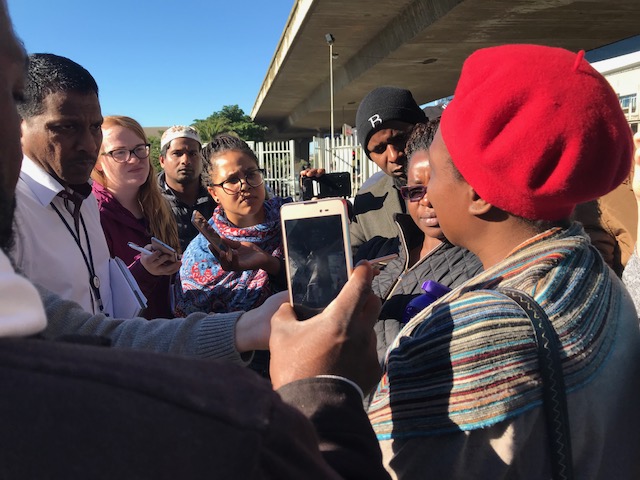Week 3: Gender Equality and Home Affairs
Commission for Gender Equality
Last week, I was able to represent PASSOP at a meeting for the Commission for Gender Equality (“CGE”). According to their website, the CGE “shall advance[,] promote and protect gender equality in South Africa through undertaking research, public education, policy development, legislative initiatives, effective monitoring and litigation.” Following a presentation by two commissioners, the room full of activists representing various organizations were allowed to express their views on the presentation as well as provide insight into the struggles faced by the Western Cape community in regards to gender equality. The first person to comment was a pastor who worried the term “woman” was not inclusive of LGBTI+ members as he had only heard the term “lesbian” used once throughout the presentation. Many others reinforced this criticism by arguing that the most vulnerable populations had not even been mentioned by the commissioners. The commissioners assured the room that the CGE seeks to protect all members of the community who face gender-based violence.

Next, activists brought up a multitude of issues faced by those in the Western Cape. One perhaps unsurprising issue due to its prevalence throughout the world was domestic violence and sexual assault faced by both women and men (and those who do not identify as either). One woman stood and told her story of being gang raped in Mitchell Plains, a township on the outskirts of Cape Town, as part of a gang initiation. She went on to describe the relation between poverty and rape. She explained that many families will give their children to gang members to be raped because the gang provides them with food and protection. These families believe that if they do not give their children to gang members, then they will continue to go hungry or be further harmed by the gang members. Another activist detailed the plight of farmworkers who are often raped by their supervisors. It is not uncommon for persons in positions of power to take advantage of the lack of job opportunities (the unemployment rate is about 20% in the Western Cape) and demand sex in exchange for not firing their employees.
Additionally, there was heated commentary on child marriage, or ukuthwala. The commissioner had described ukuthwala as being “improved” by meetings with traditional leaders. This sparked a rebuttal about how ukuthwala could never be unproblematic because of the history of violence against children in the practice. Many times, the child is abducted and forced into the marriage where they are repeatedly raped by an older member of the community. Other struggles faced in the Western Cape community based on gender included unequal pay, difficulty finding housing, and a lack of access to education.

A Visit to the Department of Home Affairs
On Tuesday, I was able to visit the Department of Home Affairs with some of my co-workers. As we approached the building, I noticed a bit of confusion. There were multiple entrances to access the building and no one really seemed to know which one to use. I also noticed, after a reporter mentioned it, a lack of security. According to locals I spoke to, this lack of security makes refugees applying for status uneasy and it puts a heavier burden on DHA staff to maintain order within the building.
The process for being called into the DHA consisted of a couple of officials calling out the names of refugee individuals and families who were then given their documents and told to enter the facility. Many, however, were turned away and told to come back another day. This is a significant issue for refugees as they have a limited amount of time and funds. Continuing to return to the DHA for up to two weeks costs a substantial amount of money and many refugees are fired because of their absence from work caused by the DHA’s inefficiency. Furthermore, you are unable to renew your papers at a location other than the one where you first applied for refugee status. This means that some people have moved to cities far away from Cape Town and must travel back to this office instead of going to the one nearest to them. For example, if they moved to Pretoria, they could not renew their papers in Pretoria and instead would have to make the fourteen hour trip to Cape Town to renew. Sometimes they are traveling with their kids and once they arrive in Cape Town and wait the two weeks to finally get their renewal, they will not have enough funds to return to where they live and work.

The main reason we were at the DHA was to meet and listen to the Democratic Alliance (“DA”) Shadow Minister of Home Affairs, Haniff Hoosen, speak about his views on the conditions of the DHA and listen to Capetonians’ concerns about how the DHA operates. Mr. Hoosen kept repeating that no one wants to leave their home country, but he also emphasized the importance of obtaining legal documentation to remain in South Africa. One criticism Mr. Hoosen mentioned was about the DHA staff’s working conditions. He explained that the staff’s conditions affect the way they are treated by people coming into the DHA as well as how the staff treats others, especially refugees, coming into the DHA. He commented that he had been to some animal shelters that had better conditions than the Cape Town DHA office because there is no real separation of work space, it is dirty, and there is no security inside the building. Two additional criticisms included that the manner in which people were rejected made him nickname it the “Department of Horror Affairs” and there should be a system for complaints to be made against DHA staff wherein they can then be investigated. Finally, Tendai, my co-worker and a refugee from Zimbabwe, was able to speak to the Shadow Minister about the condition of status of people from Zimbabwe (pictured above).